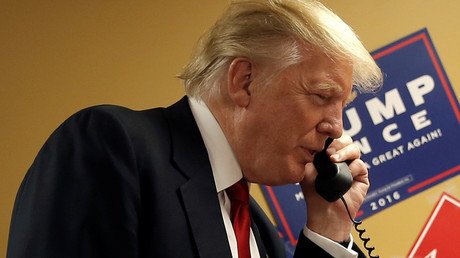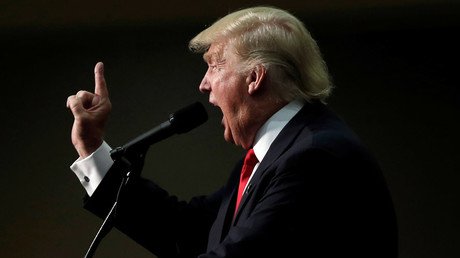NATO chief urges EU to increase military budgets to maintain bond with US under Trump
NATO’s chief has urged alliance members to cough up the cash needed to secure the “transatlantic bond” that the US president-elect has threatened to cut, unless members contribute the rquired two percent of their GDP to the common “defense” goal.
During his campaign, Donald Trump repeatedly slammed NATO, calling the alliance “obsolete.” The Republican also suggested that under his administration, the US may refuse to come to the aid of NATO allies unless they “pay their bills” and “fulfill their obligations.”
NATO Secretary General Jens Stoltenberg spoke with Trump over the phone last week, after which “progress has been made on fairer burden-sharing.”
While no details were made public about Friday's conversation, this Wednesday, Stoltenberg urged NATO members to follow the British example and contribute 2 percent of their GDP to the military alliance.
Following the talks with UK Prime Minister Theresa May, the NATO Secretary General underlined the importance of the “transatlantic bond.”
“Mr. Stoltenberg noted that the UK is leading by example on defense spending, investing over 2 percent of GDP on defense,” NATO said in a statement.
“It’s good to see that other allies are now following you and they are starting to increase defense spending,” Stoltenberg added, according to the Daily Mail. “More defense spending in Europe is important for the transatlantic bond, for fair burden sharing between Europe and the United States.”
Besides the UK, Poland, Estonia, Greece, and the United States are the only members of the 28-country alliance meeting the 2 percent threshold. The US contributes the highest proportion of its GDP to the military block, some 3.61 percent, according to NATO’s 2015 Annual Report.
Alliance members spent a collective total $892 billion on defense in 2015, with the US contributing an estimated $650 billion to the alliance last year.
In a meeting, PM May stressed that the UK wants to “remain the cornerstone of the alliance.”
“I think as we look in the face of Russian aggression, of course here in the UK we are committed to our 2 percent of GDP being spent on defense, we are contributing troops to defense of eastern Europe with the NATO operations and our commitment is significant in all of these issues and we’ve agreed to maintain our nuclear deterrent,” she said.
Russia has long since been accused by the US and NATO of posing a threat to European security. The Kremlin, however, has stood its ground, maintaining that the deployment of ballistic missiles in the Kaliningrad region is a response to a NATO buildup and drills along Russian borders, which it views as a national security threat.
But while the UK, just like thef Baltic states, continue to cite an alleged threat from Russia, the US president-elect has signaled that his administration is willing to consider a rapprochement with Moscow.
Currently, besides addressing terrorism threat, NATO’s funds are spent on supporting its apparent original and primary objective – to contain Russia. If Washington and Moscow find common ground, it is likely that the bilateral relations may influence strategy of the leading NATO member.














